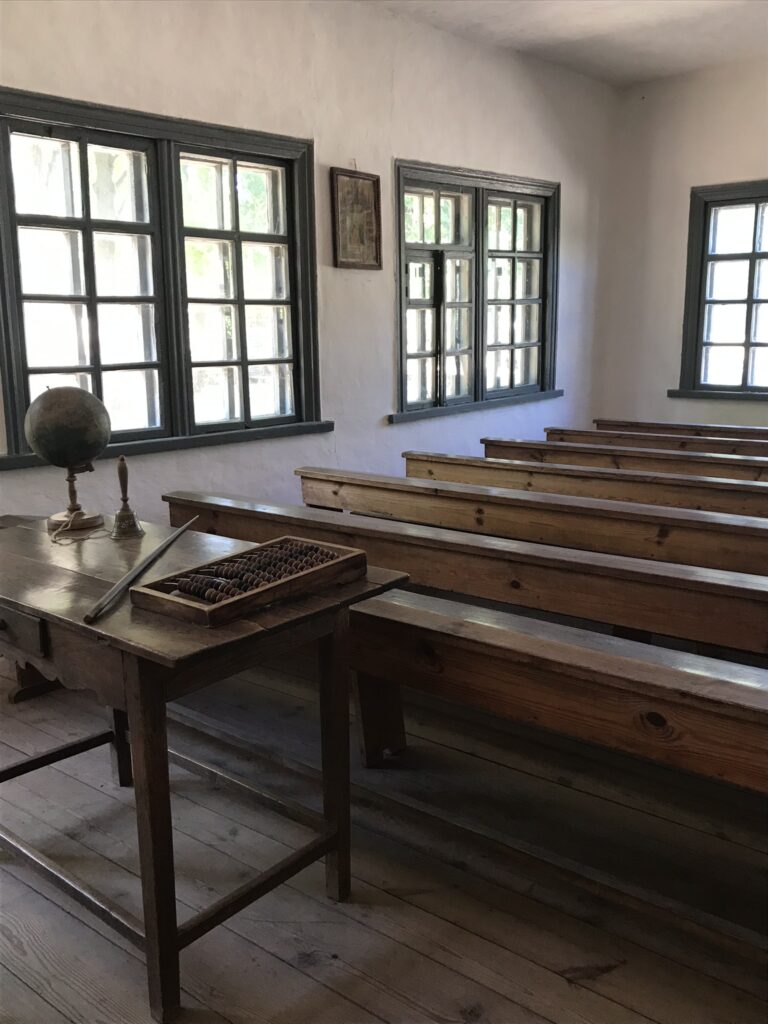One of the purposes of Teach One Reach One Ministries is to examine practices in secular education to see if they can enhance our ministries to children, teens and their families. In most secular elementary schools, they still host parent – teacher conferences several times a year. You probably remember your parents going to school a couple of times a year to meet with your teachers. In fact, almost every parent attended those private conferences. To miss them meant teachers assumed you didn’t care about your kids. (Whether or not that assessment was justified is another topic.)

Today, while many schools still have conferences, they are usually considered to be an opportunity to meet with the parents of students who are struggling. If your child is doing well and you schedule a conference, the teacher is likely to question why you are there. While parent – teacher conferences still have meaning for some, they have lost some of the hidden benefits of the parent – teacher conferences of years ago.
Can ministries benefit from setting up meetings between a child’s parents and the Bible class teacher or faith based tutor? Could those meetings help our Bible students or their parents in some way? Parent – teacher conferences in a ministry context could provide some added value, especially if they are done well. Listed below are a few things to bear in mind should you wish to try hosting parent – teacher conferences.
- Set the tone carefully. Conferences should not be viewed as an opportunity to critique families, but rather an effort to find ways to help Bible students reach their godly potential. Teachers should be encouraged to use the conferences not to complain about their students, but rather as a way of encouraging parents and finding additional ways to minister to their students and their families.
- Volunteer teachers should receive training and guidelines before conferences begin. Don’t run the risk of something positive potentially turning into something negative. Take the time to thoroughly train volunteers who will be in the conferences. Part of the training should include practice scenarios so volunteers can be observed and given feedback before meeting with an actual parent. Also spend time on listening skills training, so your volunteer teachers make sure every parent feels heard, valued and loved during their conference.
- Focus on relationship building, ministry and evangelism. What are your goals for each conference? Building relationships should always be one of your priorities. The stronger the relationships are, the more likely families will be open and honest about any issues and accepting of any offers of help or advice. Finding the unique ways each child and his or her parents need to be ministered to by your ministry is also key. If you are meeting with parents who are not yet Christians, how can you help them move forward a step in their faith and parenting journeys? In addition to these general goals for all of your conferences, you may have specific goals for each specific child’s parent – teacher conference.
- What is said in a conference should be kept private unless the parents have agreed to share information. These should not be opportunities to gather gossip under the guise of ministry. In some cases though, the teacher may not have the expertise or resources to minister to the needs that are uncovered during the conference. In those cases, the teacher should explain what he or she would like to share and with whom. In some situations, a ministry leader may decide it is necessary to understand the needs of families or to understand how parents perceive the ministry. In those cases, either the ministry leader can choose to participate in the conference or parents should be asked or informed about what information will be shared and with whom. (Note: Child abuse should be reported to the appropriate authorities. In many states, ministry volunteers are now considered mandatory reporters. In some cases, it may be best for the safety of the child to not warn parents of your plans to report the abuse.)
- Conferences can be a great way to inform parents. How do you communicate with parents normally? Have they absorbed and understood all of the information you have shared? Plan to spend some of the conference discussing the spiritual goals of your ministry, your curricula and any other important information you want all of your parents to know.
- Volunteer teachers should be looking for ways to help their students grow spiritually. In some cases, this may mean working with parents to find effective behavior management strategies so the child can learn more during class time. In most cases though, teachers should be looking for information about what they can improve or provide that will help the student grow spiritually. What do students need that they’re not currently receiving? Where are they struggling? Are there things students have expressed to their parents that could help improve Bible classes or activities?
- Volunteer teachers should look for ways to encourage and support parents. Do parents mention specific struggles? Do they have Christian parenting questions? Are they at a loss for how to teach their kids about God? Private conferences can be a safe place for parents to express their struggles and needs. Are there resources your ministry can provide, like books, articles, printed parenting resources, blogs, etc.? Do enough parents express similar needs that would justify a parenting class on the topic? Don’t forget. Sometimes just sharing with parents the potential you see and the godly character traits their child demonstrates, or signs their child’s heart loves God can be the encouragement those parents need to survive a discouraging patch.
- Volunteer teachers should seek honest feedback about Bible classes and ministry activities. These private conferences are a great place to get constructive feedback from parents. What do parents think your ministry is doing well? Where do they see a need for improvement? What great ideas do they have? Not all of the information may be valid or helpful, but often our Bible students and their parents know better than we do what needs fixing in our ministries. When we don’t encourage them to be open and honest, a lot of harm can be done before we discover and fix the problems on our own..
- Encourage volunteer teachers to begin and end each conference in prayer. Ask for any prayer requests. Be loving and kind in any prayers. Avoid passive aggressive prayers that ask God to endorse their side of a difference of opinion or critique the parents or child in some way.. (“Dear God, Please help Johnny’s parents be the good parents you want them to be, so Johnny behaves better in class.”) Ask parents to pray for Bible class teachers, volunteers and your ministry.
Parent – teacher conferences can be a valuable tool for your Bible students, their parents and your ministry. It will take additional time and effort, but for some young people and their families, it could provide the extra help they so desperately need.




